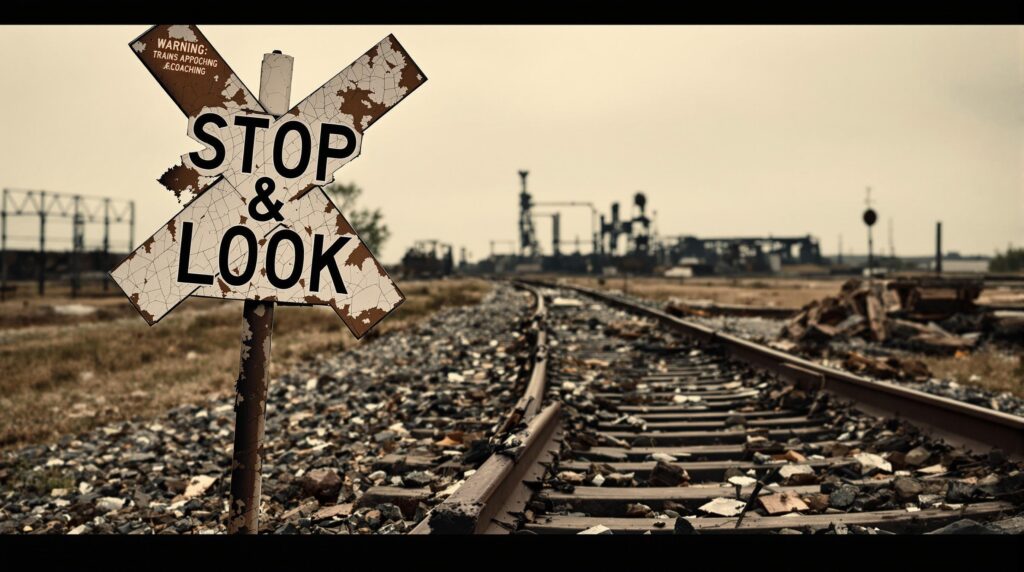When Norfolk Southern’s train derailed in East Palestine, Ohio, in February 2023, many Americans watched with horror as toxic chemicals engulfed the community in giant plumes of choking smoke. Families fled their homes, terrified of what invisible harm was settling over their town. Months later, and the residents of East Palestine are still awaiting justice. The case has now shifted from exactly what happened that dark day to a contentious legal battle over who ultimately shoulders the financial burden of this catastrophe.
The Costs and the Consequences Reach Far Beyond $600 Million
While the figure of $600 million in class-action settlement damages is staggering, it barely scratches the surface of the total turmoil—environmental and emotional—inflicted upon East Palestine. Already, Norfolk Southern has faced costs of over $1 billion in environmental cleanup alone. But the question hanging in the courtrooms of America now is whether Norfolk Southern should bear these costs alone or if other parties involved in the shipping of hazardous materials should take financial responsibility as well.
Norfolk Southern argues squarely that other companies, specifically the railcar owner GATX and chemical manufacturer OxyVinyls, bear part of the responsibility. They point to the investigation which revealed the derailment originated due to an overheated bearing on a railcar owned by GATX. Accusing these parties of negligence, Norfolk Southern’s lawyers assert: “Norfolk Southern alone has paid the costs relating to the derailment despite ample evidence that other parties share in the responsibility.”
The Blame Game Complicates Rail Safety Accountability
Yet both GATX and OxyVinyls vehemently deny any culpability. They maintain that Norfolk Southern itself failed in ensuring sufficient safety measures were recognized and enacted, while they complied strictly with federal safety regulations. This blame game brings to attention an unsettling question: should a major company like Norfolk Southern hire out crucial safety roles to partners without ample oversight? Moreover, should U.S. regulatory standards be reassessed to prevent such devastating oversights in handling hazardous materials?
The criticism that emerges from progressive circles around this case targets the larger, systemic issues within transportation and environmental policy. Rail safety in the United States is regulated under a patchwork of outdated laws and policies that critics argue inherently favor corporate interests over community health and safety. Conservative opposition in Congress has consistently hindered progressive attempts to bolster regulation and accountability, perpetuating a system vulnerable to such catastrophic failures as seen in East Palestine.
“This tragedy didn’t have to happen. Focusing on assigning blame after the fact offers little comfort to those whose lives remain disrupted.”
The Human Aftermath Reflects a Community Still in Crisis
Perhaps even more impactful than financial considerations are the lasting human and environmental repercussions that will haunt East Palestine for many years. Residents speak openly of lingering anxieties about their health, despite assurances from officials that immediate threats have passed. Questions persist about the long-term effects of the chemical exposure, particularly when local waterways and wildlife ecosystems remain visibly damaged.
Indeed, history reveals similar incidents where initial assurances later proved tragically premature. The derailment echoes the 2013 Lac-Mégantic rail disaster in Canada, a harrowing precedent where insufficient safety practices had disastrous human consequences. There, regulatory complacency and corporate irresponsibility resulted directly in the loss of 47 lives—lessons seemingly unlearned, as East Palestine closely retraces this preventable path.
Progressive policymakers and environmental advocates argue vehemently that comprehensive safety reforms, stringent oversight of hazardous material transportation, and corporate accountability are urgently needed. Yet meaningful legislation that could strengthen regulatory standards stalls repeatedly, bogged down by conservative political opposition focused on economic arguments rather than community safety and environmental justice.
Residents of East Palestine, meanwhile, must endure delays, financial uncertainties, and the scars of this disaster. Even if they receive the promised settlement money, it is undeniable that they have lost more than any dollar amount could quantify.
Amidst all these complexities, resolutions to the legal battles between these corporate entities might not provide immediate solace or regained dignity to East Palestine’s residents. Yet, holding all involved parties accountable is crucial not solely for justice in this case, but toward safeguarding future communities.
The Norfolk Southern derailment serves as a sobering reminder that until lawmakers prioritize human safety over corporate profit margins, similar disasters remain not merely possible, but tragically likely. The trial to determine shared responsibility won’t rectify the past; but in clarifying fault, it might yet hasten the shaping of a safer, more just future for all.

